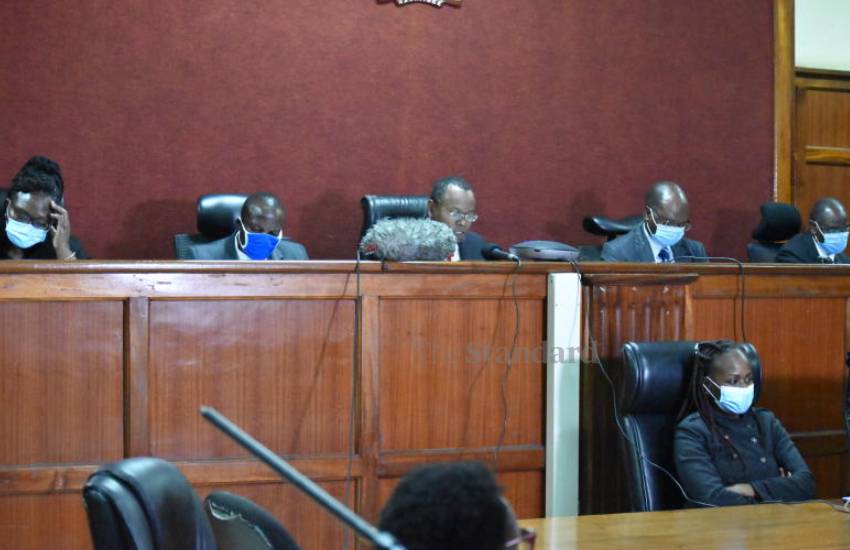
The dismissal of the Building Bridges Initiatives (BBI) in totality has the potential, through the judges’ interpretation of the law, of injuring the persona of the Kenyan voter. The judges failed to interrogate the constitutional amendment with a view to safeguard Kenyans against perennial electoral violence which the BBI attempted to cure.
Lord Alfred Denning’s would have cited their limitation as having compromised our justice system and their action as a rule of public policy which could be justified through convenience. The question is whether the ruling was made out of convenience other than progressive realisation of our common aspirations as Kenyans; protection of our primary and secondary rights.
Electoral violence in Kenya has seen eminent personalities like the late Kofi Annan and Benjamin Mkapa stepping in to broker peace. In fact, the High Court judges through their obiter dicta and in passing recognised that the Kenya National Dialogue and Reconciliation team in 2008, identified the need to have constitutional reform as a panacea to electoral conflicts and as part of what was then referred to as Agenda Four.
The Constitution is a living document and its heartbeat is felt from Nginyang in West Pokot to the far-flung areas of Osewre in West Seme, protecting every single Kenyan. The judges did not seem to appreciate that even as they explained the doctrine of basic structure as the zenith of their determination.
The Attorney General should therefore embrace the doctrine of basic structure as a necessary constitutional reality but fault the retrogressive determination by the judges.
In fact, Justice Hedge and AK Mukherjee in expounding on the doctrine of basic structure in the famous Kesavananda Bharati case acknowledged that the Constitution is a social document. It is true that a constitution interprets the behavioural character of a society. All social documents, the judges said, are based on social philosophy and every social philosophy like every religion has two features; basic and circumstantial.
In my understanding, anything basic is a constant and what is circumstantial is a variable as mathematicians would say. The same logic is infused in the doctrine of basic structure with the knowledge that there are gains we have made over the years that fundamentally need to be protected in our constitutions. The five judges failed miserably to contextually apply this Indian doctrine in their ruling as much as they embraced it. The doctrine is anchored by the following key principles which ideally should have been the key enablers in coining their determination.
The first principle is the principle of supremacy of the Constitution. The fundamental question is whether the proposed amendment through the BBI initiative compromised Article 2 of our constitution. The second principle is on sovereignty and the unity of our country. Whereas Article 2 captures both the supremacy and the sovereignty of the constitution, article 131 (c) requires the president to promote and enhance the unity of the nation. In this principle, the president is expected to hold the country together.
Take a quick survey and help us improve our website!
Take a survey
The question then is, did the president err in attempting to hold the country together through the BBI initiative? At what point does the president cease to become a Kenyan to warrant the conclusion that he failed the test of integrity under Article 73 of our constitution? This interpretation in my thinking was quite dishonest and more so having a ruling indicting the president. The president was never on trial. Thirdly, the principle of separation of powers is a key principle that perhaps the High Court should have interrogated with ease considering the proposals of having sitting MPs as part of the executive. Montesquieu would have had a milkshake on this.
Lastly, an attack of the principle of freedom that encumbers our Bill of Rights is an attack on all Kenyans. The question is, did the BBI amendments affect this primary principle or not? The judges failed the test of constitutional interpretation by not looking into non-legal considerations such as social justice and human rights as was envisaged in the case of the Interim Independent Electoral Commission (2011).
Further, in the Third Way Alliance Kenya vs Head of Public Service-Joseph Kinyua & Anor (2020), the court held that Building Bridges to National Unity Task Force was constitutional and legally established. It beats all logic that in misinterpretation of the doctrine of basic structure devoid of constitutional principles, the High Court has attempted to return Kenyans into the dark era, which was a big error, that is if the 2007 electoral violence was to repeat itself.
Credit: Source link